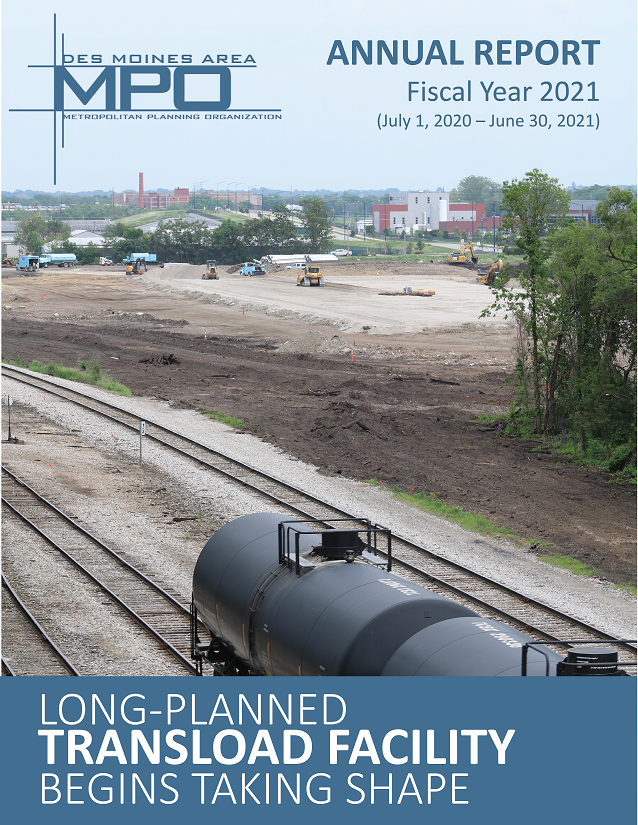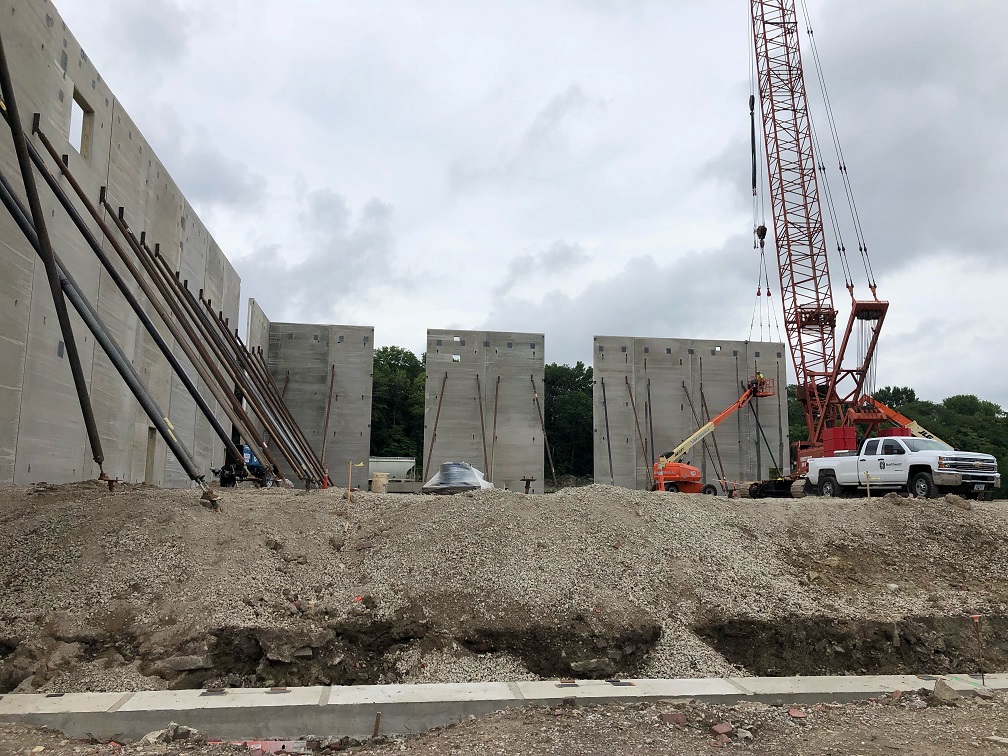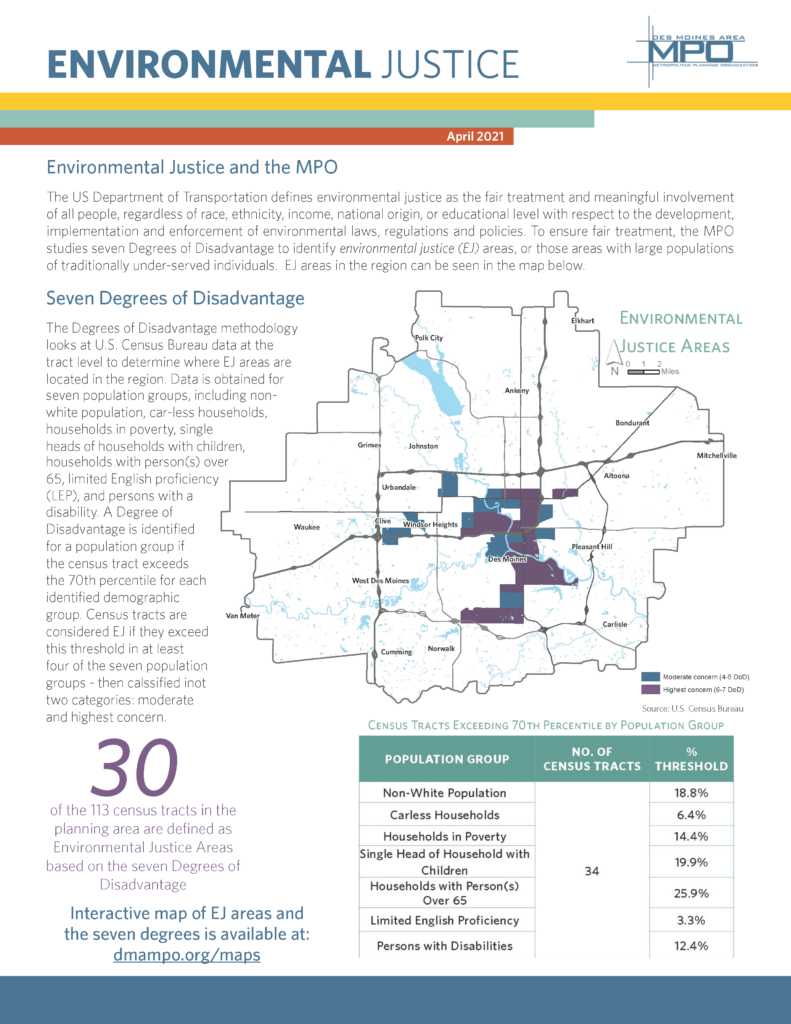Metropolitan Planning Briefing – July 2021
In this Briefing you’ll find the MPO’s Annual Report, updates on the Transload Facility construction, an Environmental Justice report, and a farewell to a departing board member.

ANNUAL REPORT: MPO’s planning work paying dividends
Another year is in the books for the MPO, and this year’s Annual Report shows the many benefits that local governments have received as a return on their membership investments.
We highlight the grant awards to local jurisdictions over the past five years, of course, which totaled more than $72 million. Nearly every member government received a share of the funding.
This year we also get to spotlight the Des Moines Transload Facility, which the MPO began planning for more than eight years ago. This past year, though, was when construction crews arrived on site, dirt started moving, and the facility started taking shape.
Speaking of …

WALLS RISING: Warehouse takes shape at Transload Facility
The new Transload Facility continues taking shape, with walls going up in recent days. Above, a crane lifts a segment of wall into place for a warehouse. The 31-acre site is located at 200 SE 15th Street in Des Moines.
The new transload facility is expected to be fully operational by January 2022, enabling the transfer of industrial goods – such as lumber, rock, salt, food products, etc. – between truck and train, or vice versa. In essence, the transload facility connects the regional interstate shipping routes to the national network of railroads. For more details on what this facility will do, take a closer look in the Annual Report.
The project was born out of planning work by the MPO, which first showed the feasibility for such a facility at that location. The MPO also raised nearly $13 million in public funds for the project, including an $11.2 million Better Utilizing Infrastructure to Leverage Development (BUILD) grant from the U.S. Department of Transportation.

REPORT: 23% of regional population lives in Environmental Justice area
The MPO recently finalized its 2021 Environmental Justice Report.
The report identifies areas in the region with higher than average concentrations of populations that are often disadvantaged. This is important information to have, as the MPO, in its planning processes and funding programs, strives to give fair treatment and meaningful involvement of all people, regardless of their race, ethnicity, income, national origin, or educational level.
In a related matter, the MPO Policy Committee recently adopted the MPO’s Title VI Documentation in separate documents for the Federal Highway Administration and the Federal Transit Administration.

RETIRED: Coleman bows out after decades on MPO Policy Committee
Finally, a farewell to Chris Coleman.
Mr. Coleman was elected to the Des Moines City Council in 1998 and joined the MPO Policy Committee shortly thereafter. He served as MPO chair for three years, and in that role he oversaw the development of The Tomorrow Plan. His last meeting was June 2021.
He says the MPO is the “most important table” in the metro. In this short video, he shares a story about the tricky business of regionalism.
Thanks, Chris.
That’s it for this Briefing. If you have comments or questions, please feel free to reach out. Thank you.

